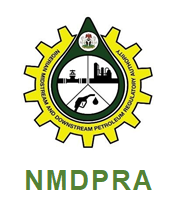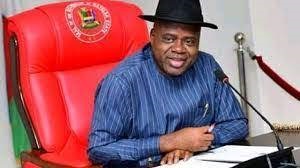Business News
Subsidy Removal: PMS Price Jumps to N537 Per Litre

Following Monday’s removal of fuel subsidy by President Bola Ahmed Tinubu, the Nigerian National Petroleum Company Limited (NNPCL), yesterday jerked up pump prices of petrol, also known as Premium Motor Spirit (PMS) from N195 per litre to 537 per litre at its fuel stations nationwdie.
According to a statement signed by the NNPC Ltd’s Chief Corporate Communications Officer, Garba Deen Muhammad, the increment is part of measures to provide the public with quality service.
The statement also said that the NNPC Limited is committed to ensuring a ceaseless supply of products.
“NNPC Limited wishes to inform our esteemed customers that we have adjusted our pump prices of PMS across our retail outlets, in line with current market realities.
“As we strive to provide you with the quality service for which we are known, it is pertinent to note that prices will continue to fluctuate to reflect market dynamics.
“We assure you that NNPC Limited is committed to ensuring a ceaseless supply of products.
“The company sincerely regrets any inconvenience this development may have caused.
“We greatly appreciate your continued patronage, support, and understanding during this time of change and growth,” the statement read.
According to a new price template disclosed by NNPLC yesterday, Lagos State has the least price of N488 per litre, while Maiduguri and Damaturu have the highest pump prices of N577 per litre.
Yesterday, most filling stations in the nation’s capital, Abuja, had adjusted to the new pump price.
Similarly, pump prices had been adjusted across the states.
For instance, in Benue State, the fuel price had been adjusted to N537 per litre.
The price adjustment represents an over 200 per cent increase.
The implication is that nearly all prices of goods and services would drastically increase.
The development is coming barely two days after President Bola Ahmed Tinubu’s inaugural speech, where he said fuel subsidy would be removed.
In the first half of 2023, Nigeria spent N3.6 trillion on fuel subsidy alone.
The country will save close to N6.7 trillion if fuel subsidies payment is discontinued.
Nigeria has spent N13.7 trillion on fuel subsidy in the last 13 years, according to Nigeria Extractive Industries Transparency Initiative.
NLC Kicks over Price Increase
The umbrella body of labour unions in the country, the Nigerian Labour Congress (NLC), yesterday fumed over the adjustment of pump prices by the Nigerian National Petrol Company Limited (NNPCL).
Barely 48 hours after President Bola Tinubu announced an end to the subsidy era during his inaugural speech at Eagle Square, Abuja on Monday, the NNPCL confirmed the hike in the pump price of Premium Motor Spirit also known as petrol.
Since the presidential pronouncement, fuel queues have resurfaced across the country as Nigerians forage for the premium product which was rose from around N185 per litre to between N400 and N600 per litre.
Worried by the situation, the NLC President, Joe Ajaero, issued a statement expressing worry that the national oil company would announce an increment.
Describing the development as unfortunate, Ajaero said the NNPCL’s action was coming on the heels of an ongoing meeting with stakeholders in the oil and gas sector to manage the unilateral but unfortunate announcement by the President.
“It is therefore unacceptable and we seriously condemn it. Good faith negotiation is key to reaching agreement. What the government has done is like holding a gun to the head of Nigerian people and bringing undue pressure on the leaders thus undermine the dialogue,” the NLC President said.
“We call on the federal government to immediately instruct the NNPC to withdraw this vexatious Pricing template to allow free flow of discussions by the parties. Nigerians would not accept any manipulations of any kind from any of the parties especially from the representatives of the Government.
“Our commitment to this process is buoyed on the fact that all the parties would be committed to ensuring that it is carried out within the ambits of liberty without undue pressure. The release of that Template may not allow us to continue if nothing is done to withdraw it so that the dialogue can continue unhindered. It is clear that Government is actually trying to scuttle the process.”
IPMAN Sanctions over 100 Petrol Stations for Price Violation
The Independent Petroleum Marketers Association of Nigeria (IPMAN), has said that over 100 petrol stations have been sanctioned for increasing pump prices.
National Spokesperson of the Association, Yakubu Suleiman, disclosed this yesterday.
Briefly after President Bola Tinubu’s speech on May 29 that the petrol subsidy has been cancelled, panic buying erupted in some parts of the country as some marketers closed shops, leading to large queues in filling stations across the country.
In Lagos, Abuja, and other parts of the country, it was observed that since May 29, some filling stations ceased operations; while those that dispensed petrol increased prices.
Speaking in an interview with Channels Television yesterday, Suleiman said there is a penalty for filling stations increasing pump prices, adding that over 100 sanctions have been placed on defaulters.
“We have a task force that goes around all the filling stations in the country and I want to assure you that they are there, working right from yesterday,” he said.
“Any filling station caught increasing the price just because of this announcement, there has to be a penalty against such stations. We sanction those who default. We close the stations. Our task force is there doing its job.
“As of yesterday, more than 100 filling stations have been sanctioned. Some of them, when we go through their reports, are not real petroleum marketers. Real ones cannot go against the rule of their administration.”
Mike Osatuyi, the national operations controller of IPMAN, had earlier told TheCable that the reflexive action of customers who wanted to stock up on cheap petrol before the price of the product increased, was to be blamed for the unprecedented level of queues.
He advised that, although there is currently enough petroleum stock to supply the nation, there would be a price increase eventually.
Meanwhile, the representatives of the federal government are expected to meet with the leadership of the Nigeria Labour Congress (NLC) today, over the planned removal of the petrol subsidy – the root cause.
NMDPRA: We’re Ready to Issue New Petrol Import Licences
The Nigerian Midstream and Downstream Petroleum Regulatory Authority (NMDPRA) said it is ready to issue licences to companies interested in petrol importation.
Speaking to newsmen on Tuesday, Farouk Ahmed, chief executive officer of NMDPRA, said the criteria for importing kerosene and diesel will be applicable for the importation of the product.
However, Ahmed said several conditions have to be met before the applicants are granted licences.
“There are a lot of conditions to be met before you are given a licence to import petrol,” he said.
“I cannot give you all the rundown now but I can tell you that just the way marketers import diesel or jet kero, there are conditions for all that and the same condition will apply to those who want to import premium motor spirit (PMS).”
Only companies that are lessees producing crude oil and/or condensates or who are holders of crude oil refining licences are eligible to supply wholesale petroleum liquids (including petrol importation), according to section 197 (2) of the Petroleum Industry Act (PIA) 2021.
While the PIA empowers the NMDPRA to issue licences to refiners or producers of crude oil, the regulation, in sections 73 (3) and 111 (1), provides that the minister of petroleum must approve such licences.
Currently, the Nigerian National Petroleum Company (NNPC) is the last-resort supplier, tasked with importing refined petrol to ensure adequate supply and distribution in the country.
Through the direct sale, direct purchase (DSDP) scheme, the country exports crude oil and exchanges it for refined petroleum products.
Business News
Tinubu Congratulates Dangote on World Bank Appointment

By Jennifer Enuma, Abuja
President Bola Tinubu has congratulated Alhaji Aliko Dangote, the President of Dangote Group, on his appointment to the World Bank’s Private Sector Investment Lab, a body tasked with promoting investment and job creation in emerging economies.
In a statement by Special Adviser on Media and Publicity, Bayo Onanauga, the President described the appointment as apt, given Dangote’s rich private sector experience, strategic investments, and many employment opportunities created through his Dangote Group.
The Dangote Group became one of Africa’s leading conglomerates through innovation and continuous investment.
Dangote Group’s business interests span cement, fertiliser, salt, sugar, oil, and gas. However, the $20 billion Dangote Petroleum Refinery and Petrochemicals remains Africa’s most daring project and most significant single private investment.
“President Tinubu urges Dangote to bring to bear on the World Bank appointment his transformative ideas and initiatives to impact the emerging markets across the world fully” the statement said.

The World Bank announced Dangote’s appointment on Wednesday, as part of a broader expansion of its Private Sector Investment Lab. The lab now enters a new phase aimed at scaling up solutions to attract private capital and create jobs in the developing world.
The CEO of Bayer AG, Bill Anderson, the Chair of Bharti Enterprises, Sunil Bharti Mittal, and the President and CEO of Hyatt Hotels Corporation, Mark Hoplamazian, are on the Private Sector Investment Lab with Dangote.
The World Bank said the expanded membership brings together business leaders with proven track records in generating employment in developing economies, supporting the Bank’s focus on job creation as a central pillar of global development.
Business Analysis
Nigeria Customs Generates over N1.75trn Revenue in 2025
By Joel Oladele, Abuja
The Nigeria Customs Service (NSC) has generated an impressive N1,751,502,252,298.05 in revenue during the first quarter of 2025.
The Comptroller-General (CG) of the Service, Bashir Adeniyi, disclosed this yesterday, during a press briefing in Abuja.
According to Adeniyi, the achievement not only surpasses the quarterly target but also marks a substantial increase compared to the same period last year, reflecting the effectiveness of recent reforms and the dedication of customs officers across the nation.
“This first quarter of 2025 has seen our officers working tirelessly at borders and ports across the nation.
I’m proud to report we’ve made real progress on multiple fronts—from increasing revenue collections to intercepting dangerous shipments,” Adeniyi stated.He attributed this success to the reforms initiated under President Bola Tinubu’s administration and the guidance of the Honourable Minister of Finance and Coordinating Minister of the Economy, Olawale Edun.
The CG noted that the revenue collection for Q1 2025 exceeded the quarterly benchmark of N1,645,000,000,000.00 by N106.5 billion, achieving 106.47% of the target. This performance represents a remarkable 29.96% increase compared to the N1,347,705,251,658.31 collected in Q1 2024.
Adeniyi highlighted the month-by-month growth, noting that January’s collection of N647,880,245,243.67 surpassed its target by 18.12%, while February and March also showed positive trends.
“I’m pleased to report the Service’s revenue collection for Q1 2025 totaled N1,751,502,252,298.05.
“Against our annual target of N6,580,000,000,000.00, the first quarter’s proportional benchmark stood at N1,645,000,000,000.00. I’m proud to announce we’ve exceeded this target by N106.5 billion, achieving 106.47% of our quarterly projection. This outstanding performance represents a substantial 29.96% increase compared to the same period in 2024, where we collected N1,347,705,251,658.31.
“Our month-by-month analysis reveals even more encouraging details of this growth trajectory,” Adeniyi said.
In addition to revenue collection, Adeniyi said the NCS maintained robust anti-smuggling operations, recording 298 seizures with a total Duty Paid Value (DPV) of ₦7,698,557,347.67.
He stated that rice was the most seized commodity, with 135,474 bags intercepted, followed by petroleum products and narcotics.
“From rice to wildlife, these seizures show our targeted approach,” Adeniyi remarked, noting the NCS’s commitment to combating smuggling and protecting national revenue.
Adeniyi also highlighted key initiatives, including the expansion of the B’Odogwu customs clearance platform and the launch of the Authorized Economic Operators Programme, which aims to streamline processes for compliant businesses. The NCS’s Corporate Social Responsibility Programme, “Customs Cares,” was also launched, focusing on education, health, and environmental sustainability.
Despite these achievements, the CG noted that the NCS faced challenges, including exchange rate volatility and non-compliance issues. Adeniyi acknowledged the need for ongoing adaptation and collaboration with stakeholders to address these challenges effectively.
Looking ahead, the NCS aims to continue its modernization efforts and enhance service delivery, ensuring that it remains a critical institution in Nigeria’s economic and security landscape.
“Results speak louder than plans; faster clearances through B’Odogwu, trusted traders in the AEO program, and measurable food price relief from our exemptions. We’ll keep scaling what works,” he concluded.
BUSINESS
NSIA Net Assets Hit N4.35trn in 2024
By Tony Obiechina Abuja
The Nigeria Sovereign Investment Authority (NSIA) yesterday disclosed that its net assets grew from N156bn in 2013 to N4.35 trillion in 2024.
Similarly, the Authority has remained profitable for 12 consecutive years, leading to cumulative retained earnings of N3.
74 trillion in 2024.Managing Director and Chief Executive Officer of NSIA, Aminu Umar- Sadiq made these disclosures at a media engagement in Abuja, highlighting its audited financial results for the 2024 fiscal year.
According to him, the results underscored the resilience of the authority’s investment strategy and the strength of its earnings, driven by a well-diversified revenue base and robust risk management practices, despite a challenging global macroeconomic and geopolitical environment.
Total operating profits, excluding share of profits from associates and Joint Venture (JV) entities, increased from N1.17 trillion in 2023 to N1.86 trillion in 2024, driven by the strong performance of
NSIA’s diversified investment portfolio, infrastructure assets, gains from foreign exchange movements, and derivative valuations.
In addition, Total Comprehensive Income (TCI), inclusive of share of profits from associates and JV entities, reached N1.89 trillion in 2024, reflecting a 59 per cent increase from N1.18 trillion in 2023.
Core TCI (excluding foreign exchange and derivative valuation gains) rose by 148 per cent to N407.9 billion in 2024 compared to N164.7 billion in 2023, supported by robust returns on financial assets measured at fair value through profit and loss, including collateralised securities, private equity, hedge funds, and Exchange-Traded Funds (ETFs).
Umar-Sadiq said the authority’s outstanding financial performance in 2024 reflected the “strength of our strategic vision, disciplined execution and unwavering commitment to sustainable socio-economic advancement.”
He said, “By leveraging innovation, strategic partnerships and sound risk management, we have not only delivered strong returns but also created value for our stakeholders
“As we move forward, we remain focused on driving economic transformation, expanding opportunities, scaling transformative impact and ensuring long-term prosperity for current and future generations of Nigerians.”
The CEO reaffirmed the authority’s commitment to managing the country’s SWF, and delivering the mandates enshrined in the NSIA Act.
He said NSIA remained poised to continually create long-term value for its stakeholders by delivering excellent risk-adjusted financial results, developing a healthy and well-diversified portfolio of assets and large-scale infrastructure projects, and enhancing the desired social outcomes.
He noted that NSIA was committed to its mandate of prudent management and investment of Nigeria’s sovereign wealth.
“In adherence to its Establishment Act, NSIA prioritises transparency, disclosure, and effective communication with all stakeholders and counterparties,” he said.
He pointed out that in the year under review, a new board, led by Olusegun Ogunsanya as Chairman, was appointed by President Bola Tinubu, in accordance with the provisions of the NSIA Act.
The new board will provide strategic direction and oversight, in addition to playing a pivotal role in critical decision making.
He remarked that under the guidance of the Board, the Authority will retain focus on its primary mandate of creating shared value for all stakeholders based on its continued adoption of corporate governance practices.
“NSIA prides itself an investment institution of the federation established to manage funds in excess of budgeted oil revenues and its mission is to play a pivotal role in driving sustained economic development for the benefit of all Nigerians through building a savings base for the Nigerian people, enhancing the development of the county’s infrastructure, and providing stabilisation support in times of economic misadventure,” he added.






























